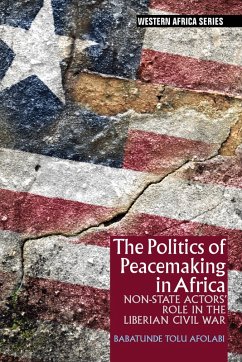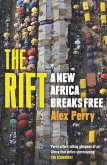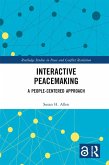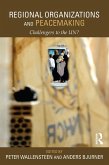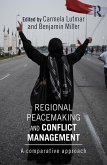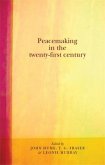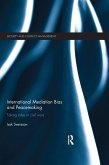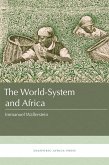A detailed examination of the role of two critical non-state groups in the Liberian Civil War peace process - the diaspora and the religious - that provides key insights for policymakers and NGOs into the roles that civil societyactors can play in conflict resolution and peacemaking.
Throws light on the role of several key agents in bringing to an end one of the darkest episodes in post-independence African history.' Ebenezer Obadare, University of Kansas
Until the 1990s, conflict resolution and peacemaking fell to states, the UN and other intergovernmental organizations. In recent times it is non-armed, non-state actors who have had a pivotal role in seeking to resolve civil wars in Africa. This book examines, for the first time, through an examination of the Liberian Civil War in particular, how non-state actors have impacted upon peace processes.
The Liberian Civil War was the first post-Cold War intra-state conflict in West Africa and exemplified the "new wars" breaking out on the continent. The peace process that followed showed how future peacemaking processes might evolve, being not only the first in which a regional economic grouping had a role - in this case ECOWAS - but also involving non-state religious and diaspora actors.
Religious actors, initiators of the Liberian peace process, were mediators, dialogue facilitators, watchdogs and trustees of the entire peace process. Although their efforts were mainly influenced by the desire to fulfil the divine mandate to "tend to the flock", they were also able to regain some of the societal influence that organized religion, especially Christianity, enjoyed during the 158 years of minority Americo-Liberian rule. Diaspora actors' roles ranged from being founders and sponsors of warring factions to providing succour to Liberians back home through remittances and engaging in the peace process.
Babatunde T. Afolabi is a Senior Programme Manager at the Centre for Humanitarian Dialogue (HD). He had previously worked at the ECOWAS Commission where he was involved in peace processes across West Africa.
Throws light on the role of several key agents in bringing to an end one of the darkest episodes in post-independence African history.' Ebenezer Obadare, University of Kansas
Until the 1990s, conflict resolution and peacemaking fell to states, the UN and other intergovernmental organizations. In recent times it is non-armed, non-state actors who have had a pivotal role in seeking to resolve civil wars in Africa. This book examines, for the first time, through an examination of the Liberian Civil War in particular, how non-state actors have impacted upon peace processes.
The Liberian Civil War was the first post-Cold War intra-state conflict in West Africa and exemplified the "new wars" breaking out on the continent. The peace process that followed showed how future peacemaking processes might evolve, being not only the first in which a regional economic grouping had a role - in this case ECOWAS - but also involving non-state religious and diaspora actors.
Religious actors, initiators of the Liberian peace process, were mediators, dialogue facilitators, watchdogs and trustees of the entire peace process. Although their efforts were mainly influenced by the desire to fulfil the divine mandate to "tend to the flock", they were also able to regain some of the societal influence that organized religion, especially Christianity, enjoyed during the 158 years of minority Americo-Liberian rule. Diaspora actors' roles ranged from being founders and sponsors of warring factions to providing succour to Liberians back home through remittances and engaging in the peace process.
Babatunde T. Afolabi is a Senior Programme Manager at the Centre for Humanitarian Dialogue (HD). He had previously worked at the ECOWAS Commission where he was involved in peace processes across West Africa.
Dieser Download kann aus rechtlichen Gründen nur mit Rechnungsadresse in A, D ausgeliefert werden.

